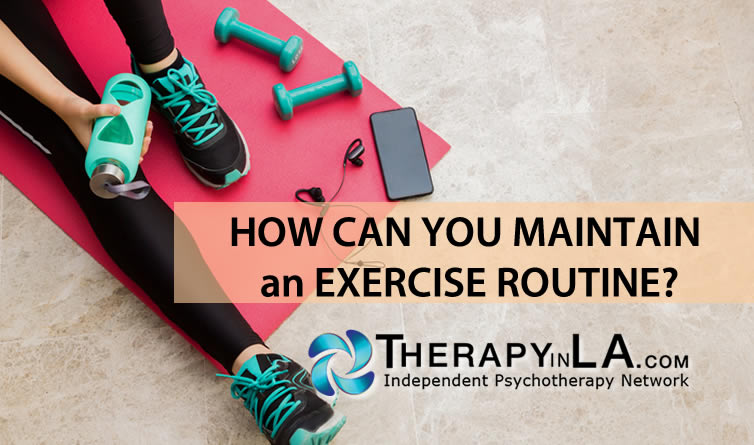HOW CAN YOU MAINTAIN an EXERCISE ROUTINE?
HOW CAN YOU MAINTAIN an EXERCISE ROUTINE?
As the COVID 19 pandemic stretches on and on, maintaining your motivation to exercise may be more and more difficult. Even though recent blogs have cited the benefits of exercise for our immune system, as well as it being an antidote to depression, anxiety, and sleep difficulties, losing interest and energy for exercise is understandable, even predictable perhaps (https://www.washingtonpost.com/lifestyle/wellness/losing-your-motivation-to-exercise-as-the-pandemic-drags-on-heres-how-to-get-it-back/2020/05/11/72e41a3c-93af-11ea-91d7-cf4423d47683_story.html?utm_campaign=wp_the_optimist&utm_medium=email&utm_source=newsletter&wpisrc=nl_optimist).
For those of us working from home, the separation between work and home is blurred, perhaps almost entirely gone. Work responsibilities can spill over into home life/hours, so that time and energy for exercise gets diminished, even lost. Some depression, anxiety, and sleep disruption can prompt fatigue and a loss of energy for working out with regularity. For those of us continuing to work outside the home, the extra stresses of dealing with the risks of becoming infected, actually becoming infected, or simply putting in extra work hours, can easily disrupt exercise routines.
Some suggestions to maintain an exercise regimen:
- Get outdoors if possible. This provides a break from all the indoor screen time from working at home, making exercise a mental break in another way. Research has also shown definite benefits from being in nature in reducing depression (Lost Connections: Uncovering the Real Causes of Depression……, by Johann Hari).
- Give yourself a break if you take a day off, or a few days off. There is some grieving in this pandemic (see previous blogs) that may impact your exercise efforts. Set a lower standard, such that walking instead of running, or 20-30 minute workouts, are acceptable.
- Adjust your goals. Pre-pandemic goals may not make much sense. Instead of preparing for a big event – such as a marathon, or 10K, or group fund raiser – re-calibrate to maintaining some level of fitness, setting aside time for yourself (and maybe sharing time with your partner), or providing relief from video calls.
- If you have frequent challenges, such as back pain, re-orient your regimen towards gaining more consistent relief (regular stretching, a yoga regimen, Zoom sessions for PT or rehabilitative training). Your challenges might be worsened by all that screen time.
- Be accountable, even to yourself. Keep a spread sheet or simple chart to log your exercise. The growing list of workouts will help motivate you.
- If some socializing is safe, share some time with a friend by walking together with masks and social distancing. Laughter and time with friends are a great relief.
- Stay future oriented: as the pandemic eases, our more traditional exercise opportunities will return.
Psychotherapy often focuses on supporting wellness and constructive life choices, such as exercise. The therapists at IPN will support such efforts.
Alan M. Solomon, Ph.D. is a clinical psychologist in private practice in Torrance, CA. A member of the Independent Psychotherapy Network, he can be reached at dralanms@gmail.com or 310 539-2772. Telehealth sessions are available by telephone or video calls.
Copyright 2020 by Alan M. Solomon, Ph.D.

